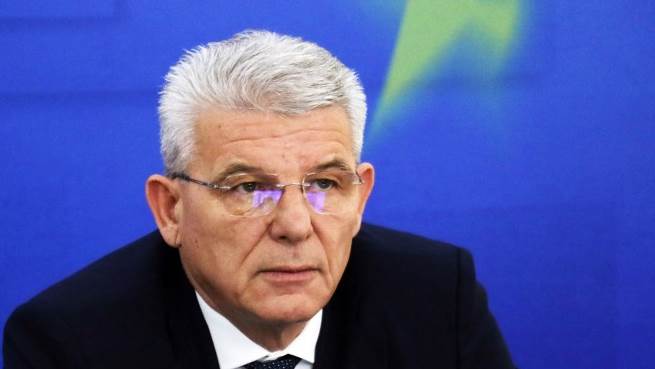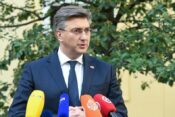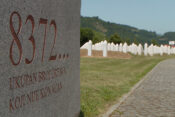
All Bosniaks must remember and warn against the Srebrenica genocide and the slaughter of over 8,000 simply because they were Bosniaks, Bosniak Presidency Chairman of Bosnia's tripartite Presidency Sefik Dzaferovic said on Saturday during a speech marking the 25th anniversary of the crome, adding that the international community must help Bosnia finally get a law prohibiting the denial of genocide.
Dzaferovic noted that even though the coronavirus pandemic has changed many things regarding the 25th anniversary of the genocide, nothing will stop the Bosniak people from marking the suffering at the then UN's protected zone.
“For it’s our obligation to remember, preserve the memory of genocide and warn ourselves and others, as well as the entire world against it. This is our duty from today, until judgement day,” Dzaferovic said.
He added that everything is known about the genocide against the Bosniaks in Srebrenica and that the truth is clear and complete – it is sealed by verdicts from international as well as national courts.
“It’s clear from the said verdicts that the genocide was planned and systematically conducted by (former president of the then Serb breakaway state of Republika Srpska in Bosnia) Radovan Karadzic and (Commander of Republika Srpska Army) Ratko Mladic’s death squads, as well as the Republika Srpska Army and police forces aided by units from Serbia and its former regime, that was declared responsible for being able to but not preventing the genocide,” Dzaferovic pointed out.
The Bosniak Presidency member emphasized that the genocide, which happened before the entire world, could have been, but unfortunately was not prevented by the then leading world leaders, including the United Nations, despite the resolution declaring Srebrenica a “UN-protected zone.”
He said that today, 25 years later, the awareness of the scale of the crime committed and the mistakes that were made has matured throughout the civilized world.
“Srebrenica has become a synonym for the suffering of innocent people, and the crime that was committed was called by the only real name – genocide,” he concluded out.
However, he warned that instead of the expected catharsis, recognition of the genocide, apology, arrests and prosecutions of those directly involved in the crome and who continue to walk freely, we are witnessing that the crime is being denied methodically and systematically, just as it was committed.
In his opinion, it is high time that the international community help Bosnia to immediately impose a law banning the denial genocide, which has the mandate to do so.
During the 1992-1995 Bosnian war for independence from the former Yugoslavia, the country lost over 100,000 people, over 8,000 of which were lost in July 1995 in Srebrenica, when Bosnian Serb forces, which received financial and logistical support both from Serbian authorities and individuals during the war, overrun the then UN-protected zone of Srebrenica.
Their bodies were subsequently buried in primary, secondary and even tertiary mass graves in an attempt to hide the crimes and make identification of victims impossible. Thanks to state of the art DNA labs, all the bodies that were buried at the Memorial Centre were positively identified.
The bodies of victims that were not identified are still held in morgues waiting for their relatives to give their DNA samples. unfortunately, many have died before their loved ones were exhumated making it impossible to identify a small number of skeletal remains.
The International Criminal Tribunal (ICTY) for the Former Yugoslavia and the International Court of Justice later ruled that the massacre was an act of genocide.
International and regional courts have sentenced 45 people for what happened in Srebrenica to a total of more than 700 years behind bars.
Those who the ICTY sentenced to life imprisonment are Ljubisa Beara, Zdravko Tolimir, and Vujadin Popovic. But the most well-known alleged masterminds of what happened in Srebrenica are former Bosnian Serb politician Radovan Karadzic and ex Bosnian Serb general Ratko Mladic, and both have been sentenced for it but have appealed.










